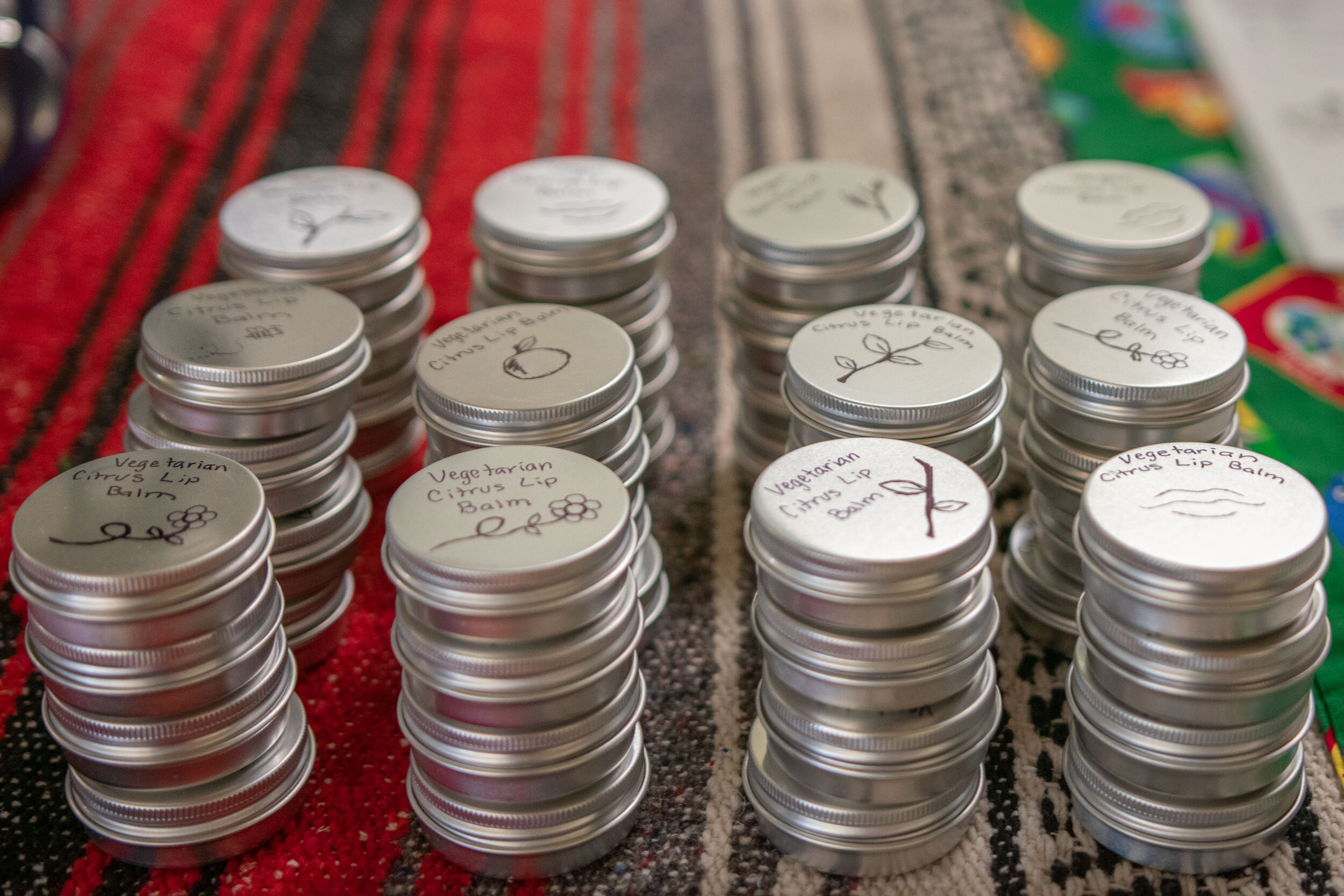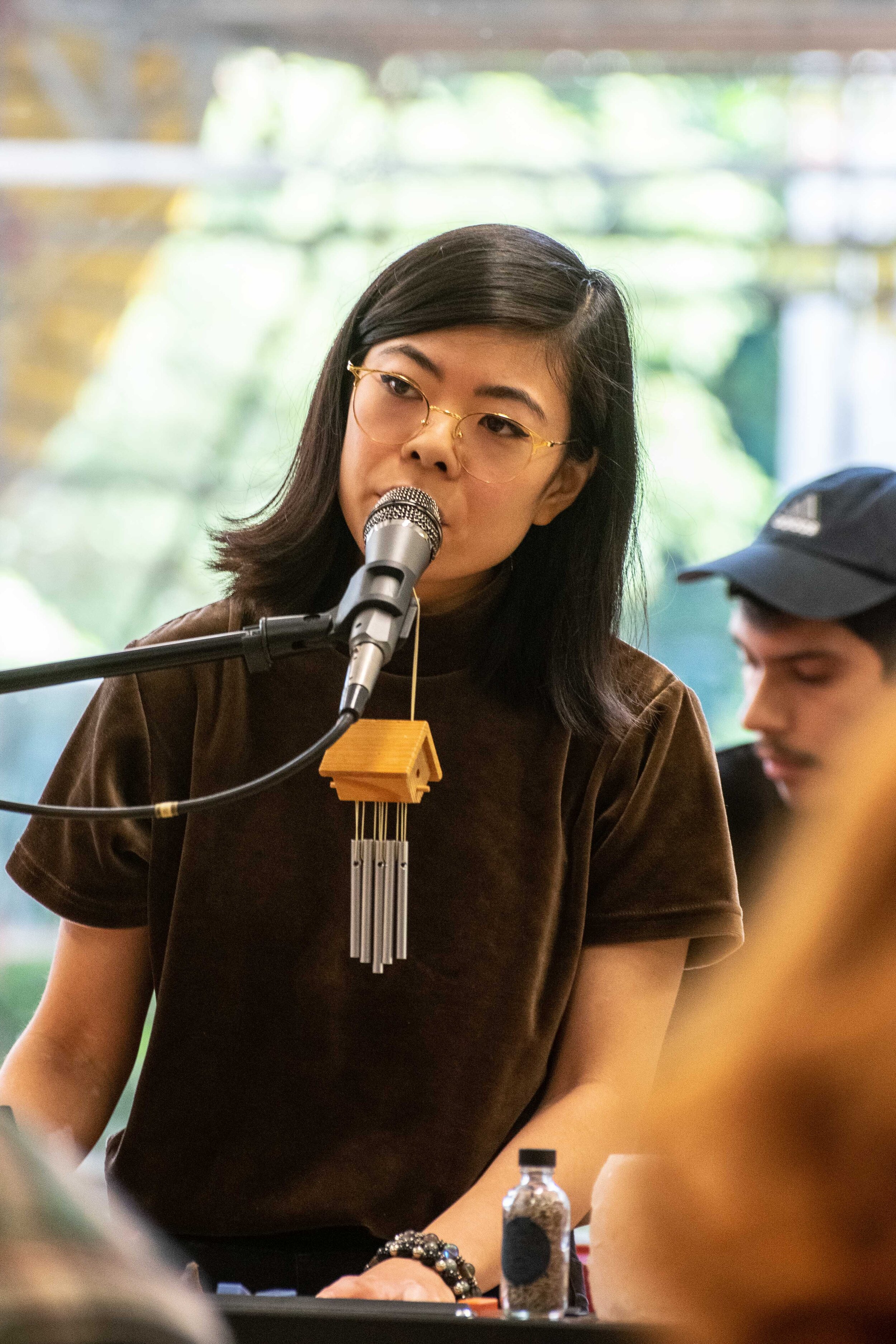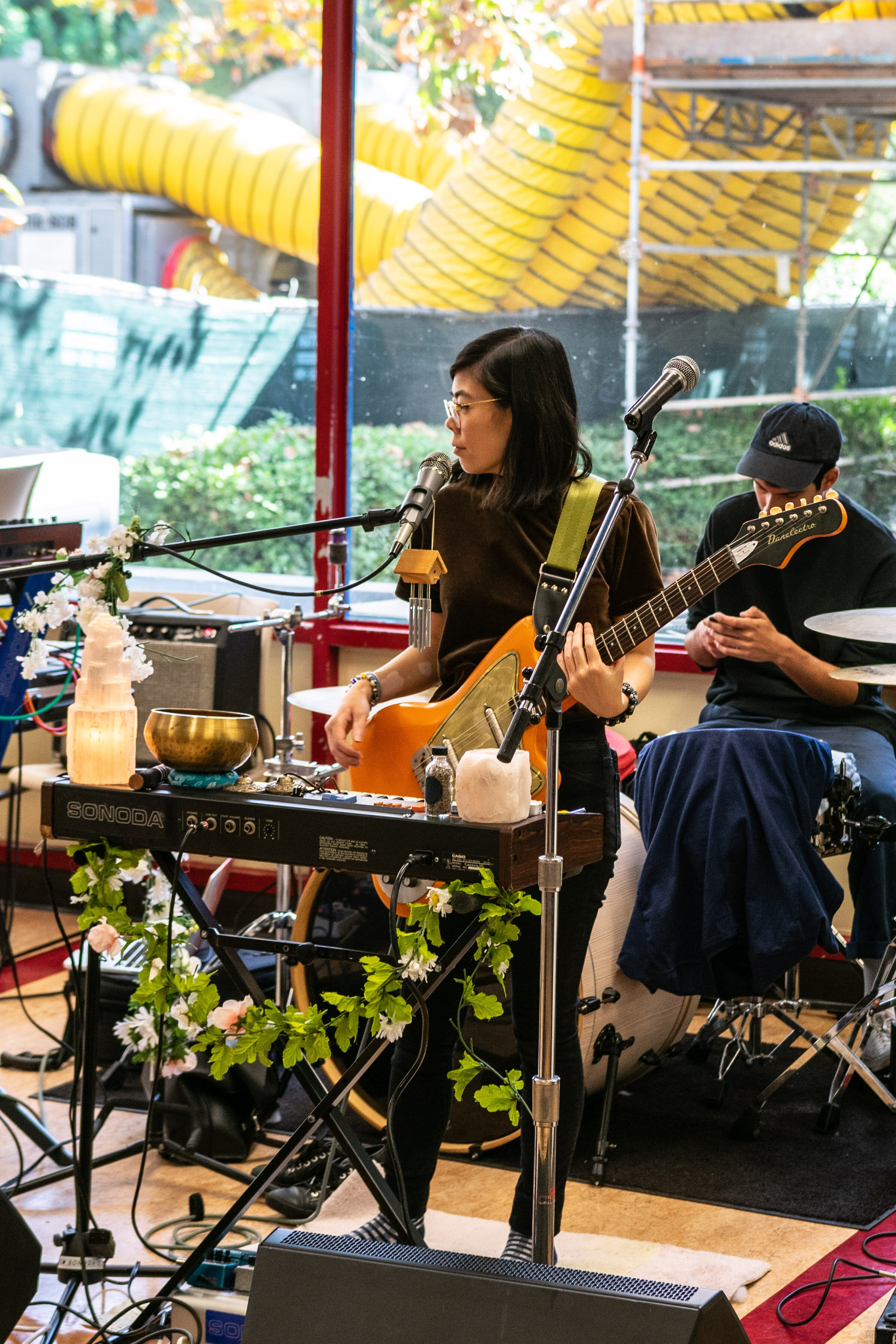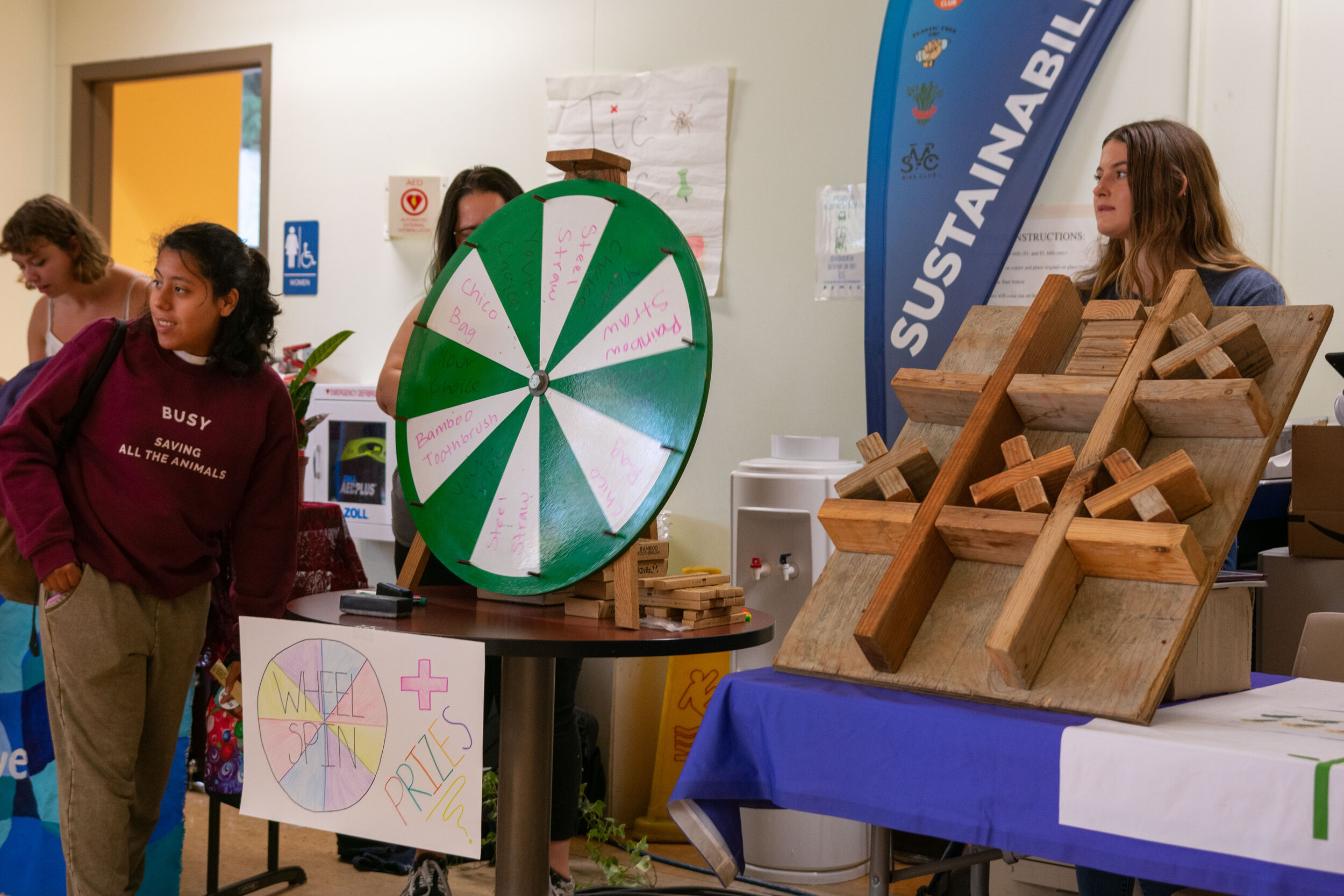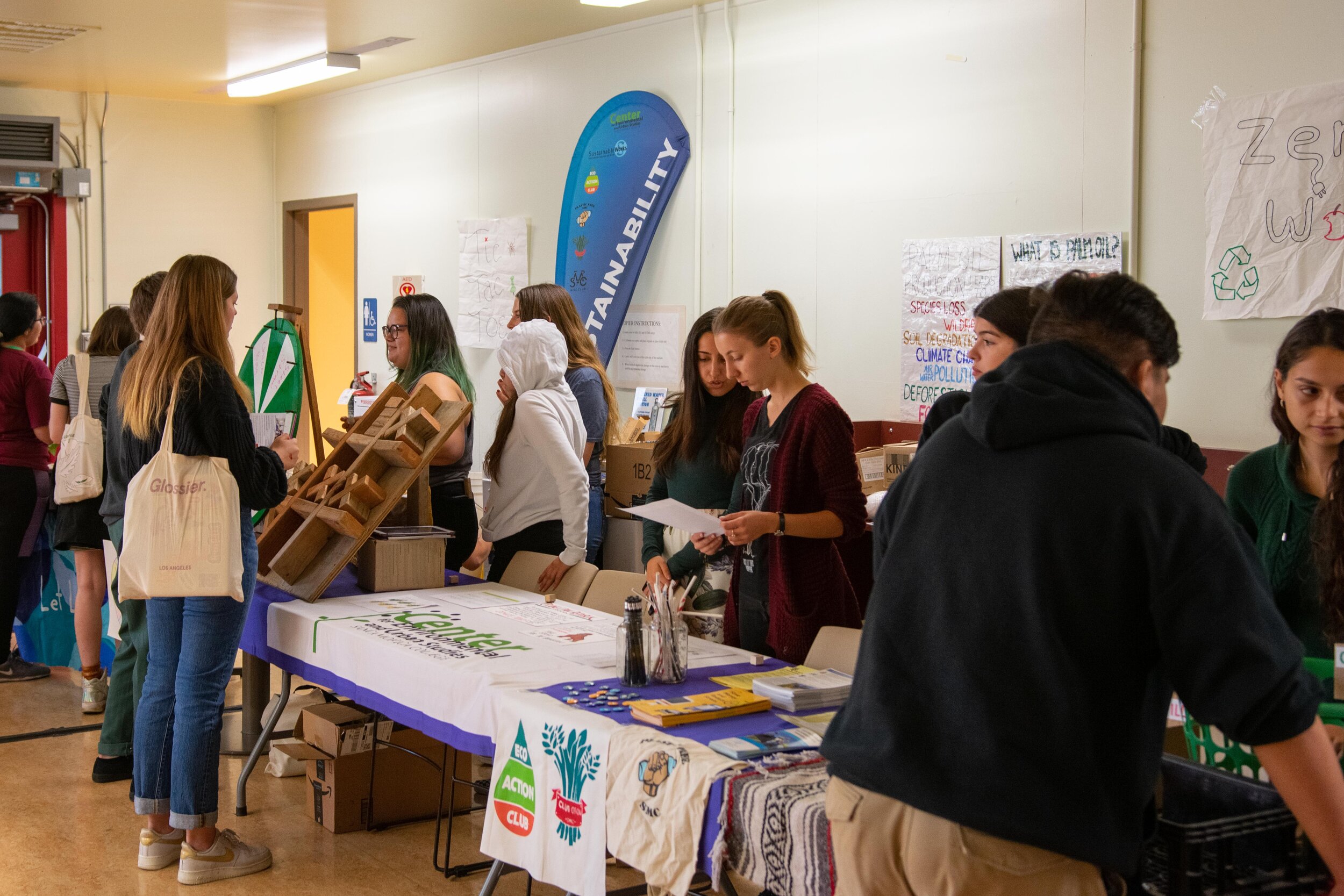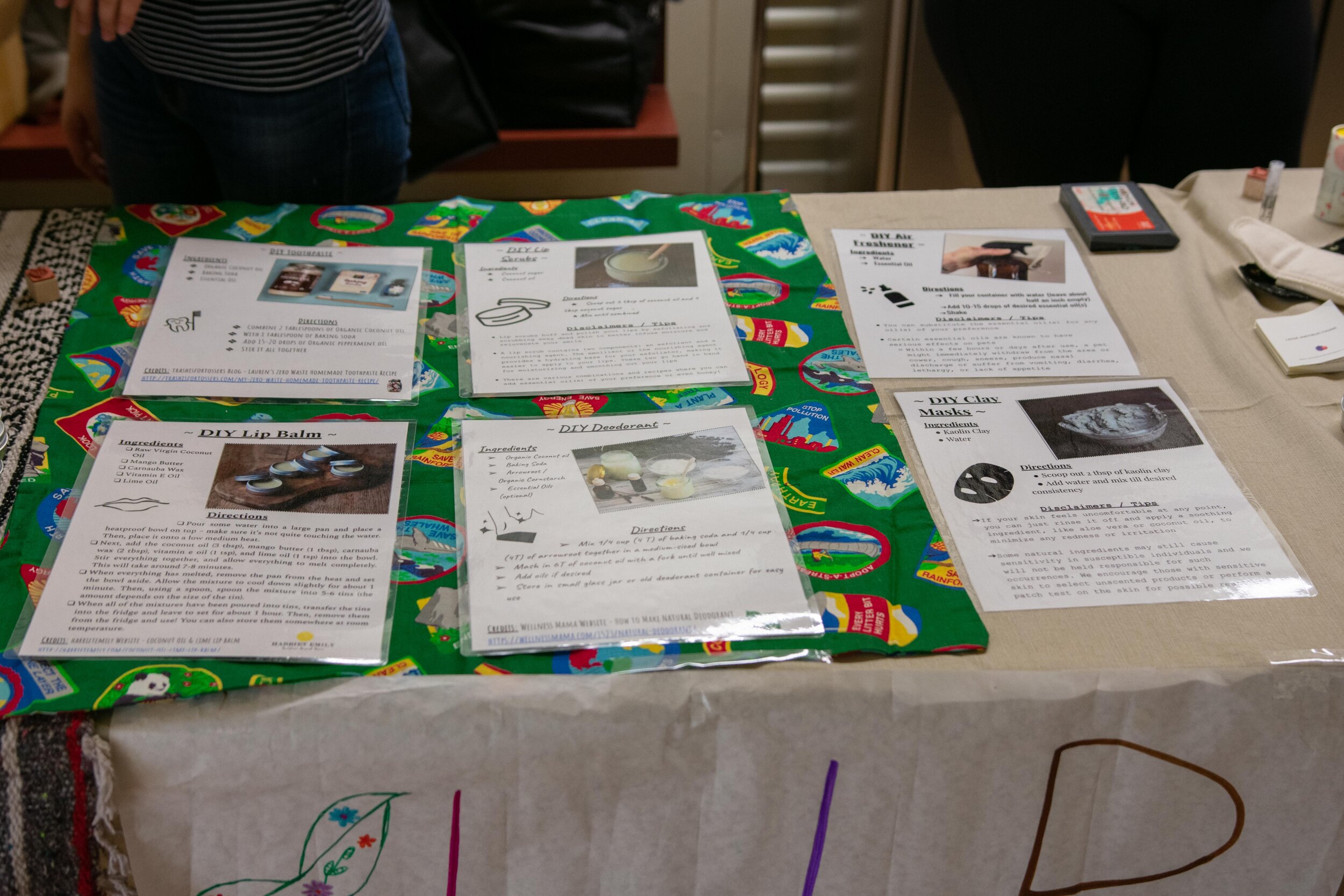Sustainability Against All Odds
Sustainability Week, planned in tandem by Eco-Action Club, SMC Bike Club, Plastic Free SMC, and Club Grow, kicked off on Oct. 29 in the Santa Monica College cafeteria. Despite the cancellation of Monday’s activities due to fire conditions, events planned for Tuesday and Wednesday continued, aiming to engage students on the issues of deforestation and conservation of Earth’s resources.
“The students have been doing it for at least seven or eight years or more ... They went and found speakers,” said Sustainability Manager Ferris Kawar, who lauded efforts by students to host the event despite the air quality. “Yesterday, unfortunately, everything was canceled because of the fires,” Kawar said.
Associated Students (A.S.) Director of Student Activities Carla Claure commented on adapting to a new location. “I just asked … one of our administrators up in A.S. if the cafeteria was available, cause that’s the next best place that I could think of where there will be people and it’ll be safe for everyone.”
Students lunched and learned, listening to local bands Cotton Ships and Sonoda perform live music. The performances were in collaboration with Let Live, the collective responsible for booking the bands. “Shows are once a month promoting sustainability,” said co-founder and SMC student Michelle Norman.
“Shows have this cool factor that can help spread a message - making sustainability cool - because it’s crucial. Because the world is burning down!” said SMC student and Cotton Ships band member Annie Getman, following the performance.
President of the Eco-Action Club, Ash Avant, spoke about the timely theme of Deforestation. “A lot of the recent fires around California, as well as in the Amazon, is what gave us the inspiration to make it deforestation themed, and to really create awareness about what’s happening in forests.”
Avant continued, “At our info booths about deforestation, we go more into detail about what's happening around us right now, and why it’s important to get on top of things right now.”
Plastic Free SMC’s table presented a possible solution to avoiding retail items that may contain ingredients like palm oil, which is often unsustainably farmed and harmful to existing habitats.
Offering up DIY lip balms and recipe sheets for hygiene products like clay masks and deodorant, club president Brisa Alvarez said, “We’re basically just trying to inform students that [they] can make their own DIYs and not necessarily spend money buying new products.”
One poster shared data from the International Conservation of Nature, revealing the negative impact on biodiversity and vulnerable species that palm oil production affects.
One such vulnerable species, the Orangutan, is a victim to deforestation effects in south-east Asia along with the Gibbon and the Cassowary, among others.
NASA’s Earth Observatory satellite data links palm crop clearing to rapid deforestation in the rainforests in South America Southeast Asia. Deforested lands eventually occupied by large scale cattle farming endangers ecosystem health and threatens biodiversity.
A Public Library of Science article titled "The Impacts of Oil Palm on Recent Deforestation and Biodiversity Loss" features data gathered by Brazilian and American university researchers. The National Science Foundation-supported data states that “Annual carbon emissions from gross tropical deforestation are estimated at 2.270 [gigatons] CO2 from 2001–2013, contributing nearly 10% of the global total of anthropogenic greenhouse gas emissions.”
Gwen Larned, SMC’s recycling coordinator who slated to speak this last Monday, instead helped a table in the quad on Wednesday, Oct. 30. “Sometimes you can see me on campus driving around in the little carts and collecting the recycling,” Larned said.
Crinkling a chip bag, Larned explained how product packaging is unregulated and ends up as garbage. “None of this stuff is recyclable, pretty much ever. And even if a city can collect it, and could hypothetically recycle it, it’s pretty much never recycled. It’s best to avoid buying stuff that just goes to landfill.”
Reflecting on Deforestation and the big picture of natural resource exploitation in rainforest ecosystems, Larned said, “Palm oil is just one really pointed example of how, as American consumers, we are purchasing products every single day that create devastating impact around the world, and we’re really unaware of it."
Larned was quick to point out that this lack of awareness could easily be remedied. “It’s super easy to become aware as soon as you start asking questions about everything you’re buying,” she continued, underscoring the importance of mindfulness and advocacy in a world facing climate change.
Larned returned to recycling reform as a way to take meaningful action, saying, “The recycling industry isn’t magical, it isn't taking your trash and turning it into unicorns.”
“Simplify it. Bring it back to the basics. Bottles, cans, hard plastic, paper, cardboard. Avoid all the other things,” Larned said, calling the community to action.

